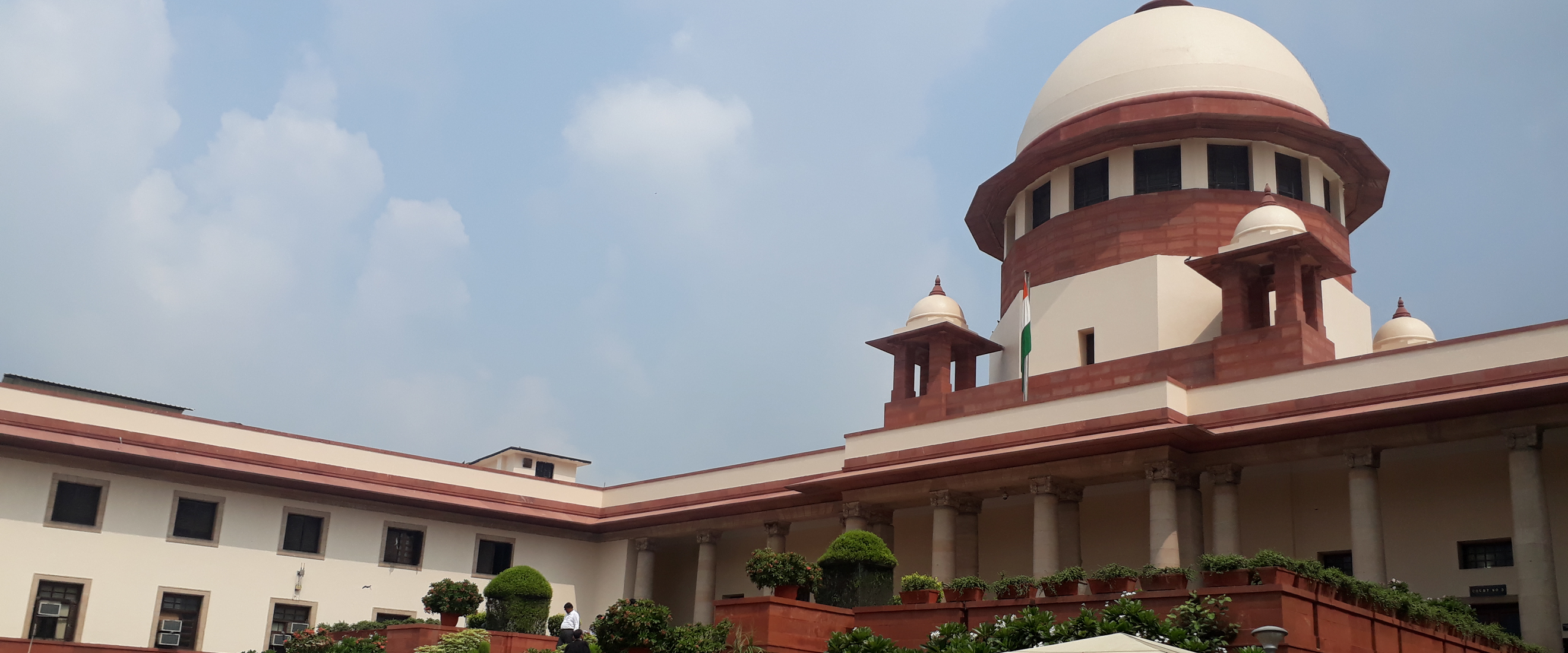Analysis
10 Cases that Shaped India in 2018
There were several important cases heard by the Court in 2018 ranging from the constitutionality of Section 377 to Sabarimala Temple Entry.

In 2018, the Supreme Court countered both the dominant political power of a single party majority government and social customs and practices that have excluded sections of the Indian population. In this series we highlight the 10 cases that shaped India in 2018.
10. Special Status of Delhi (NCT v. UOI) – The five-judge Bench of the Supreme Court unanimously decided that the Chief Minister and not the Lieutenant Governor is the executive head of Delhi Government. Hence, the LG is bound by the aid and advice of the Council of Ministers on all matters where the Delhi Assembly has the power to make laws.
9. Cow Vigilantism (Tehseen Poonawalla v. UOI) – The Court stepped in to address the menace of vigilantism by issuing a slew of guidelines, including recommending the Parliament to create an Anti-Lynching Law.
8. Hadiya Marriage (Shafin Jahan v. KM Ashokan) – The issue of ‘Love Jihad’ was given institutional credibility when the Supreme Court ordered NIA investigations into antecedents of Hadiya’s husband, Shafin Jahan. While, in the end, the SC upheld Hadiya’s freedom of choice and religion, it nevertheless played a role in turning an ordinary civil case into a ‘love jihad’ case.
7. Electoral Disqualification (Public Interest Foundation v. UOI) – Concerned with the growing criminalisation of politics, the Court examined whether an electoral candidate can be disqualified when criminal charges are framed against him/her, instead of disqualifying him/her after his/her conviction. The Court found that it could not interpret the Representation of People Act so as to allow for disqualification upon framing of charges. However, it issued directions to Parliament and all political parties to combat the rising criminalisation of politics.
6. Reservation in Promotion (Jarnail Singh v. Lacchmi Narain Gupta) – The Supreme Court unanimously held that the judgment delivered in Nagaraj in 2006, relating to reservations in promotions for SC/ST persons, does not need reconsideration by a larger seven-judge Bench. The Bench also struck the demonstration of further backwardness criterion from Nagaraj. However, the Court added that the principle of creamy layer exclusion would apply to SC/STs. Previously, it applied only to Other Backward Classes (OBCs) in matters of reservation.
5. Decriminalisation of Adultery (Joseph Shine v. UOI) – Section 497 IPC was a penal provision dealing with adultery. Under it, a man who had consensual sexual intercourse with the wife of another man, without his consent, could be punished for committing adultery. Married women had penal immunity from the law.
The Supreme Court in a five-judge Bench unanimous decision struck down Section 497 IPC, thereby decriminalising adultery. It held that Section 497 is an archaic and paternalistic law, which infringes upon women’s autonomy and dignity.
4. Arrested Activists (Romila Thapar v. UOI) – In August, the Union and State Governments decided to act against “Urban Naxals” by arresting 5 Activists – Varavara Rao, Sudha Bharadwaj, Arun Fereira, Gautam Navlakha and Vernon Gonsalves.
In response, five eminent citizens approached the Supreme Court under Article 32 of the Constitution, challenging the arrests of the five activists on 28th August 2018. They argued that the State had made the arrests arbitrarily to curb dissent and, thereby, violated the activists’ constitutional rights to equality before the law, free expression and personal liberty.
The Supreme Court in a 2:1 verdict rejected the plea for a Special Investigation Team (SIT) probe into the arrests.
3. Constitutionality of Section 377 (Navtej Johar v. UOI) – The SC corrected Suresh Koushal by striking down Section 377 of IPC, thus decriminalising same-sex relations between consenting adults. The Court spoke strongly against the draconian law through four separate concurring opinions by holding that the law violated the rights to privacy, non-discrimination and freedom of expression.
2. Sabarimala Temple Entry (Indian Young Lawyers’ Association v. State of Kerala) – The Supreme Court by a 4:1 decision held that the Sabarimala religious custom, which prohibits women in their ‘menstruating years’ from entering the Temple, violates fundamental rights guaranteed to women under the Constitution. Indu Malhotra J’s dissent has raised questions about the extent to which established religious practices can be challenged on notions of equality. The dispute is still unfolding. 50 Review Petitions have been filed and the judgment is not being enforced on the ground.
1. Constitutionality of Aadhaar Act (K.S. Puttaswamy v. UOI) – In 2017, a nine-judge Bench of the Supreme Court recognised the fundamental right to privacy. As a result, in 2018, the Supreme Court tested whether the Aadhaar Act infringed upon the right to privacy.
In a 4:1 split judgment, the Court upheld the constitutionality of the Aadhaar Act but curtailed its wide ambit by striking down provisions which had allowed non-state parties to make Aadhaar mandatory. Crucially, the Court did not strike down Section 7, which makes Aadhaar mandatory for availing State subsidies.